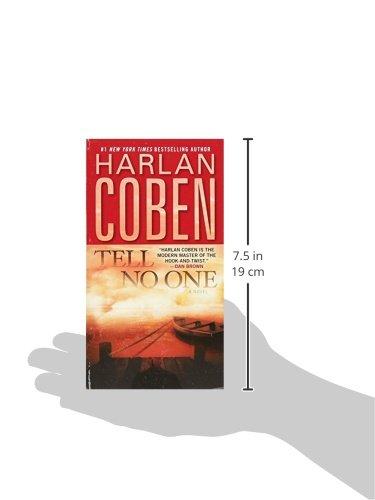
Reasons why “Tell No One” is so effective start with its actors, gifted performers who effortlessly add weight and humanity to this complex tale. Intensely pursued by both groups, Alexandre begins to live out the kind of nightmare in broad daylight that would make Alfred Hitchcock envious. A shadowy group of unknown provenance begins to closely monitor his actions, and the suspicious police, prodded by new evidence, decide he may be his wife’s murderer.

“We’re being watched.” Which turns out to be quite an understatement.įor as Alexandre sets about trying to figure out who the message is from and what it means, two additional plot lines simultaneously kick in. Then one day the impossible happens: Alexandre receives an anonymous e-mail along with a video that astonishes him with the possibility that his wife may, in fact, still be alive. In fact, we soon see that Alexandre is still a wreck about the brutal murder of his wife.

Alexandre, now a widower, is revealed to be an especially empathetic doctor, someone whose patients can sense he understands their pain because he has had so much of his own. We soon find out they have been childhood sweethearts, in love for forever.Īfter a chilling segment, best experienced and not read about, the film cuts to Paris eight years later, to today.

He is at the dinner with his wife, Margot (Croze, last seen here in “The Diving Bell and the Butterfly”). “Tell No One’s” protagonist is pediatrician Alexandre Beck (François Cluzet). “Tell No One,” in fact, excels at using music to create atmosphere and the film’s evocative electric guitar score, improvised and recorded by Matthieu Chedid while watching the picture his first and only time, went on to win the Cesar for best music written for a film. But under that supremely pleasant scene, the director has chosen to play Otis Redding’s version of “For Your Precious Love,” a deeply felt plea for eternal love that hauntingly undercuts that mood.


 0 kommentar(er)
0 kommentar(er)
